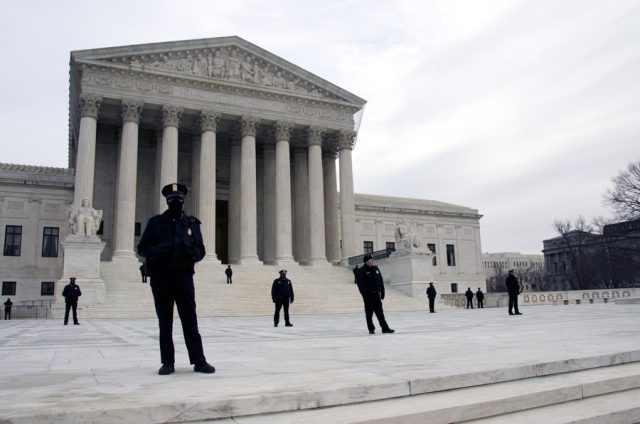In 2016, terror suspects and 7-Eleven thieves may bring surveillance to Supreme Court

(credit: Chris Wieland)
It has now been 2.5 years since the first Snowden revelations were published. And in 2015, government surveillance marched on in both large (the National Security Agency) and small (the debut of open source license plate reader software) ways.
Within the past year, Congress voted to end Section 215 of the Patriot Act—but then substituted it with a similar law (USA Freedom Act) that leaves the phone metadata surveillance apparatus largely in place even if the government no longer collects the data directly. Even former NSA Director Michael Hayden admitted in June 2015 that this legal change was pretty minor.
We also saw some notable 2015 reforms as to how federal law enforcement uses stingrays, the invasive cell-phone surveillance devices in use by everyone from local cops all the way up to the FBI, the Department of Homeland Security (DHS), and the Internal Revenue Service (IRS). The Department of Justice (the parent agency of the FBI) and DHS both announced new policies that require the agencies to get a warrant prior to deploying the snooping device.
Read 31 remaining paragraphs | Comments
Ars Technica
STRATEGIES FOR A COMPANY’S INTELLECTUAL PROPERTY. IP protection is a part of your business strategy and matches your commercial goals. A simple IP strategy is to protect your product and service by getting patent, trademark and copyright certificates.
U.S. COMPANY REGISTRATION. We help our foreign clients with registering U.S. business to support moving their innovations to U.S. market. We assist in navigating the process of setting up a new business and support while it grows.


